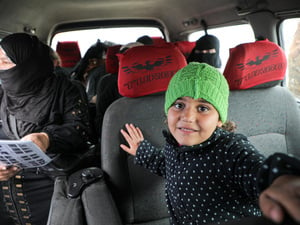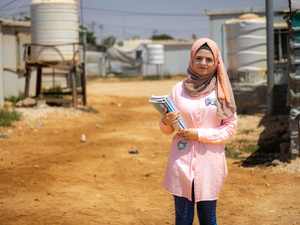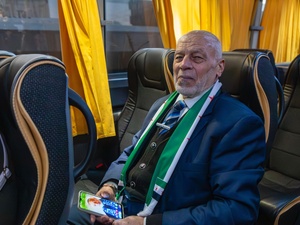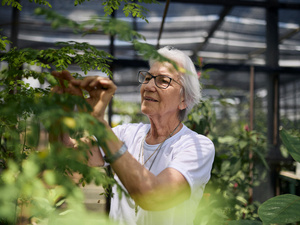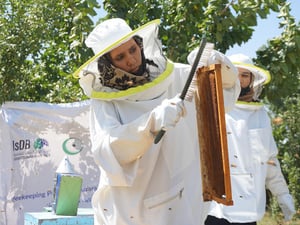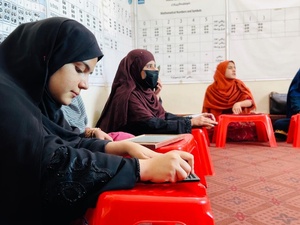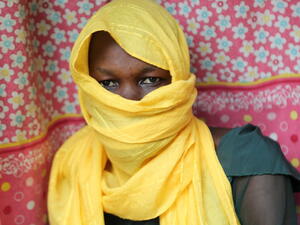The Syrian refugee mother transforming women's lives in Turkey
The Syrian refugee mother transforming women's lives in Turkey

Meeting in the courtyard of a reconstructed townhouse in Kilis which serves as a women's community centre.
KILIS, Turkey, July 30 (UNHCR) - For a woman who fled war and arrived in Turkey wearing flip-flops, Najlaa Sheekh has come a long way. Today, as the driving force behind the only known Syrian-run women's community centre in southeast Turkey, she is proving just how far.
Najlaa's journey began in the midst of Syria's civil war, when armed men raided the apartment block in Damascus where she was living with her two sons. Grabbing them, she hid in the elevator until the men left. Then she escaped to Aleppo.
There, she lived with relatives and helped to deliver medical supplies for vulnerable families displaced within Syria. Soon after, the airstrikes began.
Uprooted once more, the family moved to Najlaa's hometown of A'zaz. Najlaa commuted back and forth between Aleppo, determined to continue helping women and the vulnerable. But Syria's war was never far away.
In 2012, bombs hit the town, destroying the house where her family lived. They had little choice but to flee to Turkey, where her nine-year-old son Amer was admitted to Kilis State Hospital emergency room to treat injuries to his face.
Once he had recovered, Najlaa planned to build a new life in Kilis, reconnecting with many of the Syrian women who had fled there. But she was shocked to find that many were simply letting the time pass. These were not the strong and brave women that she had known in Syria. "What has happened to us?" she remembers asking herself. "We were the kind of people who could do anything."
It didn't take long for Najlaa to realise that knitting and handicrafts were common skills among the women, and she began wondering how she could use these to build a community. To her surprise, the answer was right in front of her. "I told my landlord about 18 talented women that I have met and without even knowing the value of Turkish money, he generously lent me 1,000 Turkish Lira," she says.

Najlaa in the courtyard of the women's community centre where she has put so much effort.
Najlaa invested the full amount in materials and, together with the 18 women, began knitting workshops at her home. Having studied psychology, she was also able to combine these with psychosocial activities on weekends, allowing the women to deepen their relationship and share their hopes, worries and dreams.
Word soon spread and, in an effort to create a sustainable business model, Najlaa sought approval from Kilis Governorate to hold a charity sale that would help more women to join the community and enable them to earn extra cash to support their families. Her hopes were quickly realised. In January 2013, the first sale, fully supported by the Governorate, was held in Kilis.
In just over a year, the knitting group alone has grown to support 45 women, among the centre's 260 participants. Eighteen trainers now offer workshops in hairdressing, Turkish and Arabic, and sewing. The women have also been able to find new premises.
Najlaa hopes that the centre can continue to receive support, such as much-needed stationary from UNHCR, and is proud of her work so far. "With every challenge, I thought that this time is the worst, but I knew I had to continue," she says. "I feel a lot of pressure and will feel a lot of sorrow if I cannot ensure that the women who put their soul into their work at the centre cannot make ends meet."
And despite her fears, Najlaa remains hopeful for the future, buoyed by her success and the arrival of her husband from Syria. "I have taught myself not to cry and show fear, but to struggle," she concludes. "And I continue teaching women that they should do the same, struggle for their rights and well-being."
By Selin Unal


